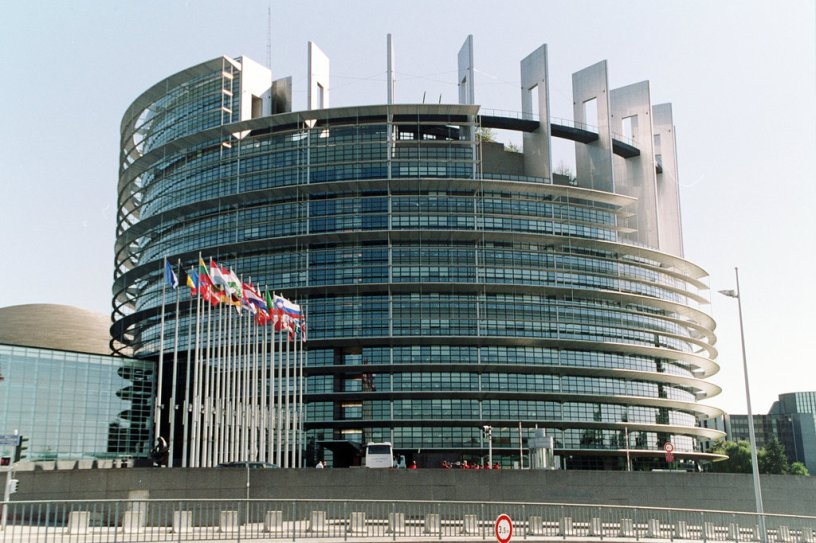The Resolution accuses the UN Security Council of failing to “address the situation in Ethiopia and the region in an effective manner,” backs the work of the International Commission of Human Rights Experts on Ethiopia and calls on the calls on the European Commission to evaluate and utilise the conclusions and recommendations of the Report of Human Rights Experts on Ethiopia.
Source: European Parliament
JOINT MOTION FOR A RESOLUTION on the recent humanitarian and human rights situation in Tigray, Ethiopia, notably that of children
5.10.2022 – (2022/2858(RSP))pursuant to Rules 144(5) and 132(4) of the Rules of Procedure
replacing the following motions:
B9‑0429/2022 (Verts/ALE)
B9‑0437/2022 (S&D)
B9‑0441/2022 (Renew)
B9‑0444/2022 (PPE)
Željana Zovko, Sara Skyttedal, Isabel Wiseler‑Lima, Peter Pollák, Janina Ochojska, Stanislav Polčák, Elżbieta Katarzyna Łukacijewska, Miriam Lexmann, Tomáš Zdechovský, Inese Vaidere, Michaela Šojdrová, Seán Kelly, Andrey Kovatchev, David Lega, Vangelis Meimarakis, Antonio López‑Istúriz White, Paulo Rangel, José Manuel Fernandes, Tom Vandenkendelaere, Christian Sagartz, Ivan Štefanec, Magdalena Adamowicz, Luděk Niedermayer, Stelios Kympouropoulos, Krzysztof Hetman, Michael Gahler, Vladimír Bilčík, Loránt Vincze, Traian Băsescu, Loucas Fourlas
on behalf of the PPE Group
Pedro Marques, Andrea Cozzolino, Maria Arena
on behalf of the S&D Group
Jan‑Christoph Oetjen, Nicola Beer, Izaskun Bilbao Barandica, Dita Charanzová, Olivier Chastel, Klemen Grošelj, Bernard Guetta, Svenja Hahn, Moritz Körner, Ilhan Kyuchyuk, Nathalie Loiseau, Karen Melchior, Dragoş Pîslaru, Frédérique Ries, María Soraya Rodríguez Ramos, Michal Šimečka, Nicolae Ştefănuță, Ramona Strugariu, Dragoş Tudorache, Hilde Vautmans
on behalf of the Renew Group
Katrin Langensiepen, Malte Gallée
on behalf of the Verts/ALE Group
Fabio Massimo Castaldo, Assita Kanko
AmendmentsSelect001-002003-003004-005Select
European Parliament resolution on the recent humanitarian and human rights situation in Tigray, Ethiopia, notably that of children
(2022/2858(RSP))
The European Parliament,
– having regard to its previous resolutions on Tigray and Ethiopia, and in particular those of 26 November 2020[1] and 7 October 2021[2],
– having regard to the Universal Declaration of Human Rights,
– having regard to the African Charter on Human and Peoples’ Rights,
– having regard to the fourth Geneva Convention relative to the Protection of Civilian Persons in Time of War of 1949 and its additional protocols of 1977 and 2005,
– having regard to the UN Refugee Convention of 1951 and to its 1967 Protocol,
– having regard to the report of 3 November 2021 by the Ethiopian Human Rights Commission/Office of the UN High Commissioner for Human Rights Joint Investigation into Alleged Violations of International Human Rights, Humanitarian and Refugee Law Committed by all Parties to the Conflict in the Tigray Region of the Federal Democratic Republic of Ethiopia and the Ethiopian Human Rights Commission report of 11 March 2022 on violations of human rights and international humanitarian law in the Afar and Amhara regions of Ethiopia conducted between September and December 2021,
– having regard to the UN Human Rights Council resolution of 17 December 2021 establishing an international commission of human rights experts to conduct a thorough and impartial investigation into the allegations of violations and abuses committed since 3 November 2020 by all parties to the conflict in Ethiopia,
– having regard to the report of 19 September 2022 by the International Commission of Human Rights Experts on Ethiopia,
– having regard to the United Nations Convention on the Rights of the Child (UNCRC),
– having regard to the Cotonou Agreement,
– having regard to Rules 144(5) and 132(4) of its Rules of Procedure,
A. whereas this 23-month conflict has triggered a human-made crisis and widespread and entirely preventable human suffering; whereas the humanitarian situation throughout Ethiopia remains dramatic due to the conflict, drought and large-scale internal displacements; whereas on 24 August 2022, Ethiopian federal war planes bombed a kindergarten in Mekelle, Tigray, resulting in child casualties;
B. whereas having declared a humanitarian truce in March 2022, the Ethiopian federal government partially lifted the humanitarian siege of Tigray but shortages of essential supplies, including food, medicine and fuel, persist;
C. whereas vulnerable groups, in particular women and children, are suffering the most from the ongoing conflict in Tigray and are in urgent need of protection; whereas the children of Tigray have seriously suffered the effects of famine, violence, lack of medical aid and education, family dislocation, forced transfers and constant trauma;
D. whereas women and children are continually the targets of intended and unintended bombings, shootings, killings and other acts of violence in the war and ethnic violence being perpetrated by all sides of the conflict;
E. whereas rape and other sexual violence against women and girls continue to be widely used by all the belligerents, in addition to death threats, the use of ethnic slurs and captivity for sexual slavery; whereas internally displaced refugee women and children are at a heightened risk of abduction and trafficking for sexual exploitation;
F. whereas throughout the evolution of this conflict, the sole constant has been the many alleged gross violations of human rights, humanitarian law and refugee law perpetrated by all parties to the conflict; whereas nearly half a million Ethiopians have died as a result of violence and famine, and more than 1.6 million people have been displaced by this conflict; whereas since the beginning of the war, hundreds of thousands of civilians have been forcibly displaced, unlawfully killed or experienced sexual and gender-based violence, mass arbitrary detention, pillage, abduction and the denial of humanitarian assistance and basic services, looting of aid and the diversion of aid to soldiers;
G. whereas one out of three Tigrayan children under the age of five and half of all pregnant and breastfeeding women are malnourished; whereas some 20 million people are in need of humanitarian assistance in Ethiopia, nearly three quarters of them women and children; whereas Ethiopia is experiencing the worst drought on record since 1981, leaving an estimated 7.4 million people facing grave food insecurity;
H. whereas, the percentage of children in Tigray receiving routine vaccines has plummeted due to supply shortages caused by the blockade imposed by Ethiopian forces; whereas deadly diseases such as measles, tetanus and whooping cough are on the rise;
I. whereas a total of 1.39 million children in Tigray are missing out on education because of Ethiopia’s civil war; whereas Tigray’s education sector has been permanently damaged by the number of deaths and the level of destruction within the school system; whereas 346 men and 1 798 women, totalling 2 164 persons, in the education sector have been killed, including students;
J. whereas since the start of the conflict, humanitarian organisations’ access to conflict zones has systematically been hindered, in spite of the repeated calls by the international community and humanitarian organisations to ensure unimpeded, sustained and secure access for relevant stakeholders; whereas humanitarian workers are the targets of violence by all parties to the conflict; whereas at least 23 humanitarian workers have been killed since the conflict started;
K. whereas access to real-time information has been severely hindered by government-imposed restrictions, including cutting off communications and preventing reporting on events in Tigray, as well as in the Afar and Amhara regions, where the conflict has spread; whereas these communications blackouts and restrictions on physical access for independent observers to areas affected by the conflict have severely inhibited the documenting of human rights abuses;
L. whereas the UN International Commission of Human Rights Experts on Ethiopia published a report on 19 September concluding that there are reasonable grounds to believe that the parties to the conflict have committed war crimes and violations and abuses of human rights;
M. whereas Eritrea has played a very destructive role in this conflict and has contributed to escalating it by entering the conflict in Tigray; whereas media reports about a renewed incursion into northern Tigray have been circulating since late September;
N. whereas, in September, the Tigray People’s Liberation Front and the Ethiopian Government indicated their commitment to an African Union-led peace process;
1. Reiterates its urgent call for an immediate cessation of hostilities and ceasefire in Tigray and the neighbouring regions without preconditions;
2. Calls for immediate, full, safe and sustained humanitarian access to all those affected by the conflict in the region;
3. Calls for an immediate return to constitutional order and for the establishment of a ceasefire monitoring mechanism; expresses its support for all diplomatic efforts to end the ongoing conflict within Ethiopia, in particular, through African Union (AU) mediation;
4. Strongly condemns the deliberate targeting of civilians by all the warring parties and the reported recruitment of children by certain warring parties; recalls that deliberate attacks on civilians, the targeting of children and the recruitment and use of child soldiers constitute war crimes and crimes against humanity;
5. Condemns the Eritrean forces’ invasion of Tigray; condemns the war crimes and human rights violations by Eritrean forces during the war in Ethiopia; urges the Eritrean government to withdraw its forces from Ethiopia with immediate and permanent effect and to ensure accountability for its war crimes;
6. Calls on all authorities in Ethiopia, in particular the federal government and the regional governments in Tigray, Amhara and Afar, to adhere to the highest human rights standards, to address as a priority the egregious war crimes committed against the most vulnerable, in particular children and women, and to protect its youth in line with the UNCRC;
7. Is dismayed by the reports of rape and crimes of sexual violence against children, women and men which have been perpetrated on a staggering scale by all the belligerents; is deeply concerned by and calls for immediate attention to reports of the killing and maiming of Tigrayan, Amhara and Afarian children on ethnic grounds, which constitute war crimes and ethnic cleansing;
8. Reiterates its call on forces on all sides to respect international human rights, international humanitarian and refugee law; calls on the Ethiopian federal government and Tigrayan regional government to ensure accountability for perpetrators of war crimes committed during the ongoing conflict; insists on the need for cooperation between local and international actors, in particular the Ethiopian Human Rights Commission and the UN Human Rights Council (UNHRC), in ensuring redress for survivors and victims of all forms of war crimes and crimes against humanity;
9. Calls for all girls and women in Ethiopia to have access to sexual and reproductive health and rights (SRHR); urges the EU and the Member States to increase support for SRHR services and specifically contraception and access to safe abortion, with special attention on ensuring access in regions in Ethiopia affected by war and humanitarian disaster; calls on the Ethiopian government to fulfil its commitment to investigate the many serious cases of gender-based violence in the conflict committed by all warring parties;
10. Is concerned by the reports of an increase in child marriages and child labour, human trafficking and transactional sex as desperate means to survive in regions of Ethiopia affected by war and humanitarian disaster;
11. Calls for action against the abduction, trafficking and sexual exploitation of refugees and internally displaced persons in Tigray, Amhara, Afar and Eritrea, and for the provision of assistance and protection is provided to all victims, without discrimination on grounds of race or ethnicity, nationality, disability, age, gender or sexual orientation;
12. Urges the EU and its Member States to increase support for emergency rehabilitation centres for women and children, including children born of rape, which protect and rehabilitate survivors of gender-based violence, human trafficking and sexual exploitation; emphasises the importance of providing shelter, psychosocial services, and vocational training for survivors and calls for additional support for existing shelters;
13. Recalls that extrajudicial executions, enforced disappearances, arbitrary detentions, acts of torture and ill-treatment, forced displacement, sexual and gender-based violence, rape and gang-rape, attacks on aid workers, attacks on civilian infrastructure, such as schools and hospitals, and destruction and looting of public and private property constitute war crimes under international law;
14. Calls on the Commission and Member States to support domestic accountability initiatives based only on clear, transparent, effective, and measurable benchmarks that ensure independent and impartial justice and accountability for victims and survivors;
15. Strongly condemns the use of starvation as a method of warfare; recalls that obstruction of the delivery of food and healthcare and denial of these services amount to crimes against humanity; recalls that humanitarian aid and assistance is based on the principles of humanity, impartiality, neutrality and independence;
16. Reiterates its call to fully re-establish basic public services such as electricity infrastructure, banking services, schools and hospitals as well as to immediately lift restrictions on telecommunications in Tigray;
17. Calls on national and regional authorities to ensure that internally displaced persons and refugees have the right to safely return to their homes or places of residence on a voluntary basis and to set up a fair, accessible and independent mechanism to provide compensation for losses or damage to housing, property and land; urges the EU and its Member States to assist and support the organisation and monitoring of returns;
18. Strongly condemns the fact that the state of emergency has led to ethnically motivated arrests, harassment, beatings and the targeting of journalists; calls for the immediate release of all journalists who remain in arbitrary detention and for freedom of expression and speech to be ensured; calls on the warring parties to ensure free access to the press and to allow journalists to carry out their work safely;
19. Expresses concern for the safety and well-being of independent humanitarian workers in the region; strongly condemns all attacks on humanitarian aid workers and critical infrastructure and the continuous seizures of UN humanitarian supplies;
20. Reiterates its call on the Ethiopian government to sign and ratify the Rome Statute of the International Criminal Court; stresses the need for an independent and impartial mechanism to address ongoing violations and accountability;
21. Calls on all the belligerent parties to immediately end hostilities and to reach a formal ceasefire agreement without preconditions; reiterates its call for a national dialogue that must be as inclusive, broad and transparent as possible, including representatives from civil society and opposition parties, in order to fulfil the goal of being a true catalyst for reconciliation; urges the EU and its Member States to fully engage with the peace process in order to ensure its credible progress;
22. Takes note of some positive developments in the country, such as the humanitarian truce of 24 March 2022 and the release of some political prisoners, increased humanitarian access during the truce, as well as, in particular, public declarations by the Ethiopian government and Tigrayan leadership committing to AU-led peace talks;
23. Welcomes the renewal of the mandate of Olusegun Obasanjo as the AU High Representative for the Horn of Africa; expects further action following statements about the anticipated appointment of a trio of high-level AU mediators in order to prioritise an agreement on a permanent ceasefire, unhindered humanitarian access to all areas and the immediate withdrawal of Eritrean forces, and to facilitate accountability and internal reconciliation; calls for these mediators to be appointed without delay;
24. Reiterates its call for the EU and its Member States to adopt measures to protect human rights and to adopt sanctions against perpetrators of human rights violations through the Global Human Rights Sanctions Regime;
25. Supports the Commission’s postponement of budget support disbursements to the Ethiopian government since December 2020; calls on the Commission to continue its life-saving support for the region aimed at civil society and independent humanitarian organisations, and to step up its efforts to ensure the safety of children; calls on the Commission to reconsider its limitation of budget support to implementing measures in order to allow the continued implementation of development projects outside the conflict zone;
26. Deeply regrets the fact that the UN Security Council (UNSC) has failed to address the situation in Ethiopia and the region in an effective manner; urges the EU and its Member States to call on the UNSC to hold regular public meetings on Ethiopia and the region and to take meaningful and decisive action to ensure unhindered humanitarian access, allow the protection of civilians, end and condemn grave violations of international law and ensure accountability for atrocities;
27. Recalls that in its resolution S-33/1 on the situation of human rights in Ethiopia, adopted on 17 December 2021, the UNHRC decided to establish an International Commission of Human Rights Experts on Ethiopia (ICHREE); urges the EU and its Member States to support the allocation of adequate funding by the UN to the ICHREE and calls on the Ethiopian federal government to facilitate unfettered access for the ICHREE; calls on the UNHRC to renew the ICHREE’s mandate and to provide it with sufficient time, as well as the technical assistance and budgetary resources required, to carry out its mandate without limiting its temporal or geographic scope;
28. Recognises the findings of the UNHRC’s Report of the International Commission of Human Rights Experts on Ethiopia (A/HRC/51/46) of 19 September 2022, which documents incidents of war crimes; calls on the Commission to evaluate and utilise the conclusions and recommendations and on the Ethiopian authorities to recognise these results in an effort to restore human rights protection and work towards redress for victims of war crimes; calls further on all parties to the conflict to endorse the recommendations by the joint investigation by the UN Human Rights Officer and the Ethiopian Human Rights Commission;
29. Instructs its President to forward this resolution to the Commission, the Vice-President of the Commission / High Representative of the Union for Foreign Affairs and Security Policy, the Federal Government and House of Federation of Ethiopia, the Tigrayan authorities, the Government of the State of Eritrea, the governments of the Intergovernmental Authority on Development, the African Union and its Member States, the Pan-African Parliament and the ACP-EU Joint Parliamentary Assembly.


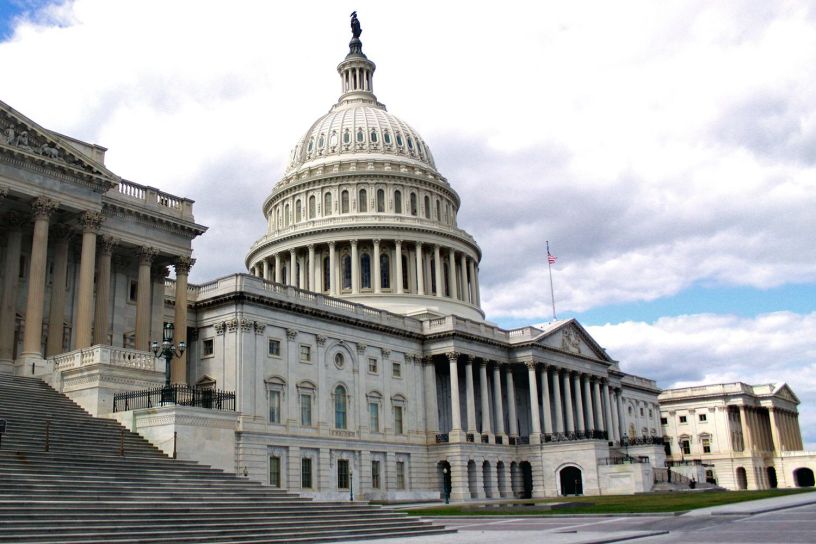

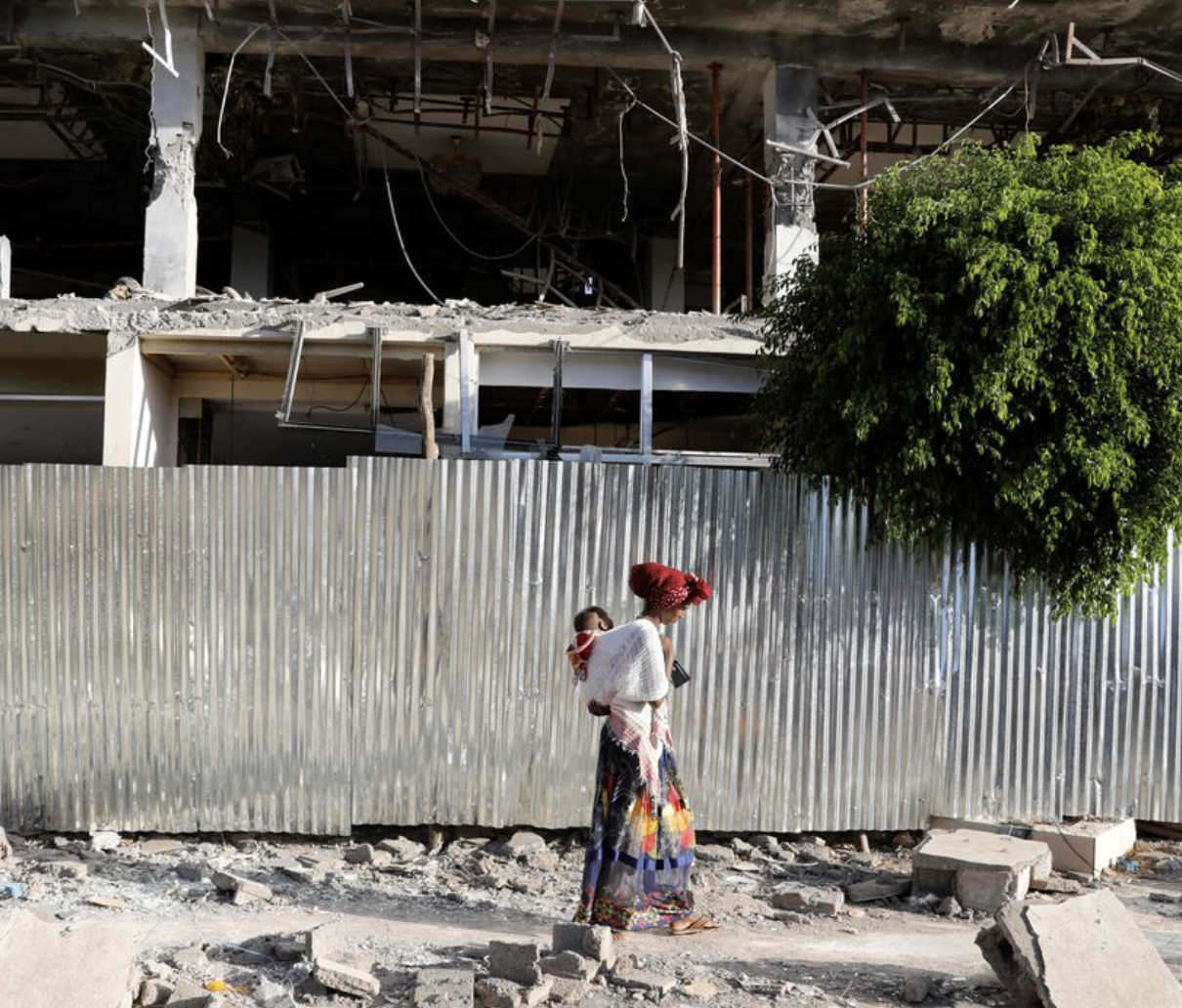 A woman walks past the rubble of a building damaged by fighting in the town of Shire, Tigray region, Ethiopia, March 17, 2021. Picture taken March 17, 2021. REUTERS/Baz Ratner
A woman walks past the rubble of a building damaged by fighting in the town of Shire, Tigray region, Ethiopia, March 17, 2021. Picture taken March 17, 2021. REUTERS/Baz Ratner
 The Melotti family had made their money from producing beer. The famous
The Melotti family had made their money from producing beer. The famous 
 When her husband dies, Mrs. Emma does not yield to the advice of those who invite her to leave and abandon everything.
When her husband dies, Mrs. Emma does not yield to the advice of those who invite her to leave and abandon everything.
 An Eritrean passport – in order to obtain one, those who have left the country illegally must submit a declaration that they have committed a crime and pay “diaspora tax”. Photo: AS Photo Project/stock.adobe.com
An Eritrean passport – in order to obtain one, those who have left the country illegally must submit a declaration that they have committed a crime and pay “diaspora tax”. Photo: AS Photo Project/stock.adobe.com
 Satellite images taken last month showing heavy weaponry and military forces on the move in Serha and Sheraro in the Tigray region of Ethiopia.Credit…Maxar Technologies
Satellite images taken last month showing heavy weaponry and military forces on the move in Serha and Sheraro in the Tigray region of Ethiopia.Credit…Maxar Technologies
 Medhin Gereziher, age 1, receiving treatment for malnutrition at a hospital in Tigray on Tuesday. More than five million people in the region are in urgent need of food aid.Credit…Associated Press
Medhin Gereziher, age 1, receiving treatment for malnutrition at a hospital in Tigray on Tuesday. More than five million people in the region are in urgent need of food aid.Credit…Associated Press A World Food Program truck carrying grain to Tigray burning 50 miles from Semera, a town in northern Ethiopia, in June.Credit…Eduardo Soteras/Agence France-Presse — Getty Images
A World Food Program truck carrying grain to Tigray burning 50 miles from Semera, a town in northern Ethiopia, in June.Credit…Eduardo Soteras/Agence France-Presse — Getty Images A victim of an airstrike being cared for in an ambulance in Mekele, the capital of the Tigray region, last month.Credit…Associated Press
A victim of an airstrike being cared for in an ambulance in Mekele, the capital of the Tigray region, last month.Credit…Associated Press President Isaias Afwerki of Eritrea, right, and Prime Minister Abiy Ahmed of Ethiopia, second right, in Addis Ababa, the Ethiopian capital, in 2018.Credit…Mulugeta Ayene/Associated Press
President Isaias Afwerki of Eritrea, right, and Prime Minister Abiy Ahmed of Ethiopia, second right, in Addis Ababa, the Ethiopian capital, in 2018.Credit…Mulugeta Ayene/Associated Press Tigrayan residents in Addis Ababa rallied at the headquarters of the African Union on Tuesday. The African Union’s efforts to broker peace have been hobbled by disputes over mediators and money.Credit…Amanuel Sileshi/Agence France-Presse — Getty Images
Tigrayan residents in Addis Ababa rallied at the headquarters of the African Union on Tuesday. The African Union’s efforts to broker peace have been hobbled by disputes over mediators and money.Credit…Amanuel Sileshi/Agence France-Presse — Getty Images Ethiopian peacekeepers deployed to the Abyei region arriving in Kassala, Sudan, in May, after seeking asylum.Credit…Hussein Ery/Agence France-Presse — Getty Images
Ethiopian peacekeepers deployed to the Abyei region arriving in Kassala, Sudan, in May, after seeking asylum.Credit…Hussein Ery/Agence France-Presse — Getty Images A destroyed tank near the village of Erebti, Ethiopia, in June.Credit…Eduardo Soteras/Agence France-Presse — Getty Images
A destroyed tank near the village of Erebti, Ethiopia, in June.Credit…Eduardo Soteras/Agence France-Presse — Getty Images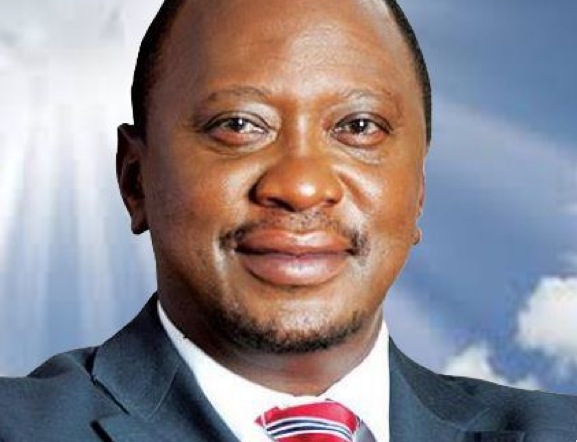
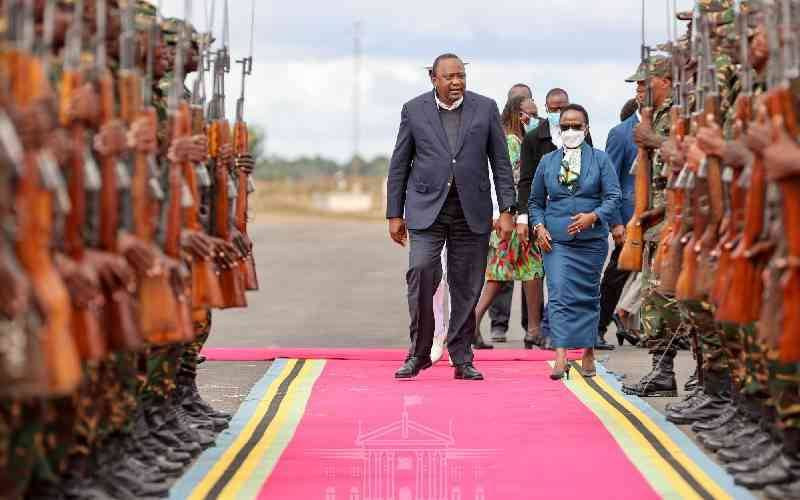 Former President Uhuru Kenyatta when he arrived in Tanzania for the EAC Heads of State summit.[PSCU, Standard]
Former President Uhuru Kenyatta when he arrived in Tanzania for the EAC Heads of State summit.[PSCU, Standard]